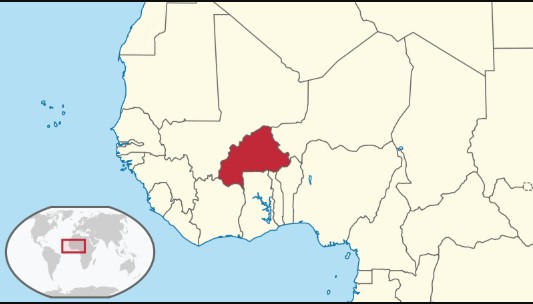By Stefan J. Bos, Chief International Correspondent Worthy News
OUAGADOUGOU (Worthy News) - Some 170 people have been "executed" in three villages in northern Burkina Faso on February 25, the same day that dozens were killed in church and mosque attacks, authorities said Sunday.
Regional prosecutor Aly Benjamin Coulibaly said he received reports of the massacres in the villages of Komsilga, Nodin, and Soroe in Yatenga province, with a provisional toll of "around 170 people executed".
The attacks left others wounded and caused material damage, the prosecutor for the northern town of Ouahigouya added in a statement.
He did not blame any group but urged witnesses to come forward to help detain those responsible.
Survivors of the attacks told reporters that dozens of women and young children were among the victims.
Local authorities said the violence was separate from other deadly attacks that day, including at a Catholic church during Sunday mass in northern Burkina Faso’s Essakane village
The church said suspected “Islamist militants” were to blame.
DOZENS SHOT
At about the same time, dozens of people were shot dead at a mosque in the east of the country on the same day that the church was targeted, added authorities in Burkina Faso.
It was during early-morning prayers on Sunday that the gunmen were seen surrounding the mosque in Natiaboani town. The victims were all Muslims, most of them men, witnesses said.
Reports say the attackers were Islamist fighters who also targeted soldiers and a self-defense militia stationed locally that same day.
Local media described “a huge invasion” by hundreds of machine gun-wielding insurgents on motorbikes.
Terror group Al-Qaeda's Sahel branch said it had “seized an army barracks” in Natiaboani but didn’t mention an attack on a mosque that witnesses suggested was an intended target.
Reports suggested the death toll from the mosque attack could be much higher than the dozens count given by officials.
In a telegram sent to the nation’s central leaders, Pope Francis expressed the “deep affliction” he felt on hearing of the attacks.
PRAYING FOR VICTIMS
The pontiff said he prayed for the victims as “hate is not the solution for conflicts,” adding that there should be “respect for sacred places” and “a fight against violence” aimed at “the promotion of the values of peace.”
The violence came as more than a third of Burkina Faso is currently under the control of Islamist insurgents.
The nation is part of the vast Sahel region where authorities have faced a battle against rising Islamic extremism since Libya's civil war in 2011 was followed by an Islamist takeover of northern Mali in 2012.
The “jihadist insurgence” spilled over into neighboring Burkina Faso and Niger in 2015, with fighters often targeting Christians as well as Muslims opposing their battle, Worthy News monitored.
The military seized power two years ago, promising to win the battle against insurgents, but the violence continues, according to Christians and other sources.
Recent attacks were the latest in a series of atrocities blamed on Islamist groups active in the region, with several targeting churches while others have been kidnapping clergy.
The ACLED analysis group says that 439 people were killed in such violence in January alone.
MOST NEGLECTED CRISIS’
A priest who was kidnapped from the northern town of Djibo five years ago is still missing. And in 2021, the leading imam of Djibo was abducted by armed men and found dead days later.
Humanitarian workers say the Muslim-majority nation of some 23 million is one of the “world's most neglected crises.”
The United Nations says that years of rampant insecurity forced more than two million people from their homes while a quarter of all children under five have stunted growth due to hunger.
Captain Ibrahim Traore, who seized power in 2022 in Burkina Faso’s second coup in less than a year, pledged to improve security as recent fighting killed an estimated 20,000 people.
“Burkina Faso (formerly Upper Volta) achieved independence from France in 1960. [However] repeated military coups have been the norm for much of the country's history,” noted the U.S. Central Intelligence Agency (CIA) in a pessimistic assessment.
Separately, army chiefs warned of the increased risk of attacks by militants, "including attacks on urban centers."

